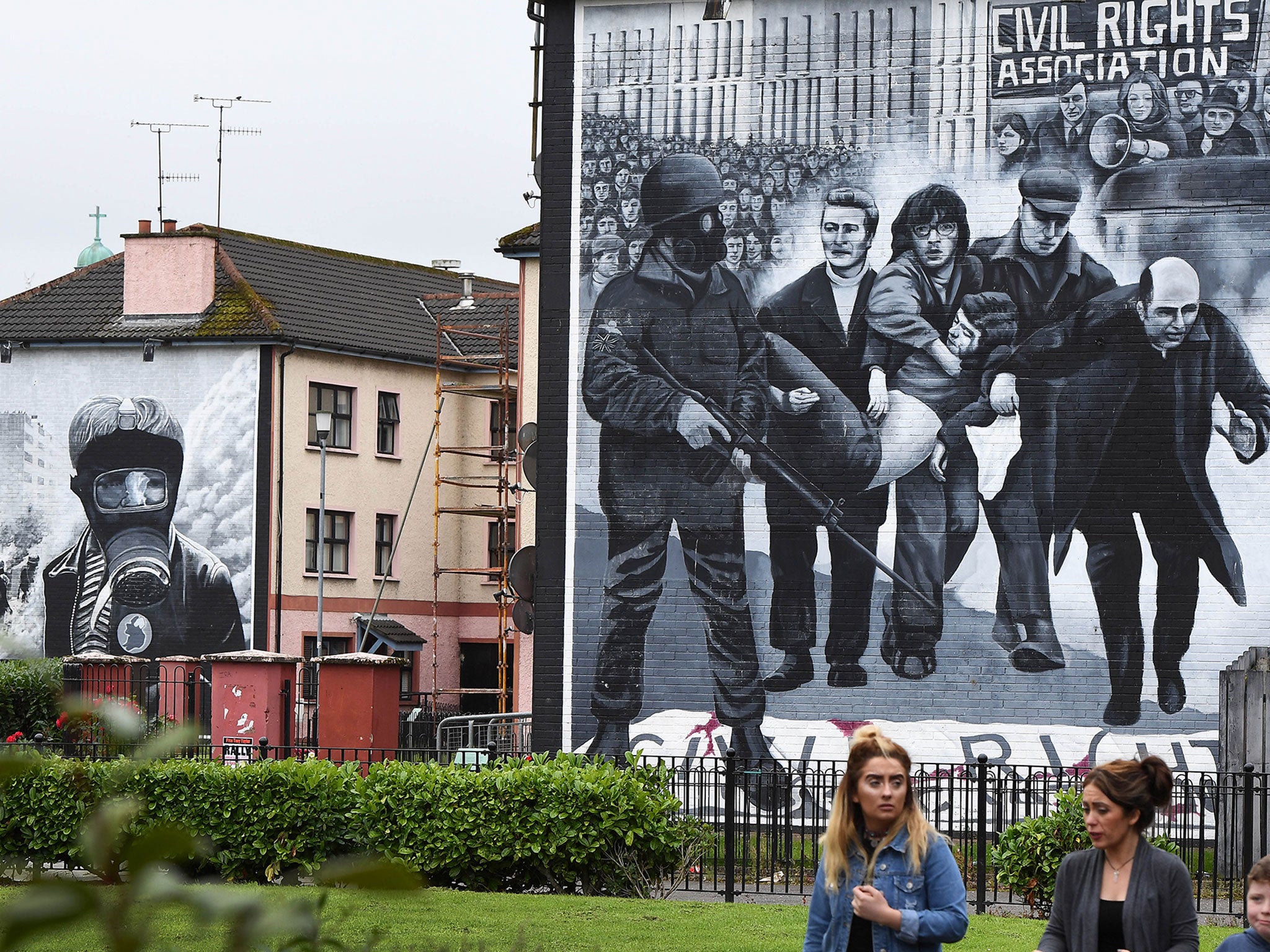Brexit: Northern Ireland should keep EU funding to preserve peace process, European Parliament says
MEPs said the programmes should stay in place 'deal or no-deal'

Your support helps us to tell the story
From reproductive rights to climate change to Big Tech, The Independent is on the ground when the story is developing. Whether it's investigating the financials of Elon Musk's pro-Trump PAC or producing our latest documentary, 'The A Word', which shines a light on the American women fighting for reproductive rights, we know how important it is to parse out the facts from the messaging.
At such a critical moment in US history, we need reporters on the ground. Your donation allows us to keep sending journalists to speak to both sides of the story.
The Independent is trusted by Americans across the entire political spectrum. And unlike many other quality news outlets, we choose not to lock Americans out of our reporting and analysis with paywalls. We believe quality journalism should be available to everyone, paid for by those who can afford it.
Your support makes all the difference.Northern Ireland should be allowed to keep hundreds of millions of pounds in EU funding after Brexit to keep the region’s peace process on track, the European Parliament has said.
A report drawn up by the Parliament’s influential committee on regional development recommended that funding for two schemes – the Interreg and PEACE programmes – should continue whether “deal or no-deal” because of the invaluable role they have played in reducing community tensions.
The programmes, whose total funding is £470 million, are currently 85 per cent funded by the EU and focus on building trust between the unionist and nationalist communities in Northern Ireland.
The report recommends that “post-2020, without prejudice to the ongoing EU-UK negotiations, EU support for territorial cooperation, especially regarding cross-border and cross-community projects, should be continued”.
It says that there are legitimate “fears that an end to these programmes would endanger cross-border and inter- and cross-community trust-building activities and, as a consequence, the peace process”.
The report was overwhelmingly backed by a vote of MEPs in plenary by 565 votes to 51. Conservatives MEPs notably abstained, on the grounds that aspects of the report raised questions about Northern Ireland's sovereignty after Brexit.
Derek Vaughan, the committee’s rapporteur told MEPs: “Whatever happens in the future, deal or no-deal, the British government, the Irish government, and the European Union, should commit to continuing to operate and fund Interreg and the PEACE programme.
An end to these programmes would endanger cross-border and inter- and cross-community trust-building activities and, as a consequence, the peace process
“It has been huge economic improvement and tensions have been reduced. But we do know that those tensions still bubble away. When we were there on the delegation one of the things we were told is that some survey work had been done and since the referendum attitudes have hardened amongst the communities.”
He added: “I hope nobody gets the impression, and they shouldn’t get the view from the report, that we’re saying that ‘no EU funds means a return to the Troubles’ – the report isn’t saying that, and I wouldn’t say that. But I am saying, and what the report says, is that EU funds have made a valuable contribution to reducing those tensions and conflict.”
Corina Crețu, the EU Commissioner for regional policy, said that Northern Ireland was “undoubtedly one of the most telling examples of what cohesion policy has helped achieved in border regions and beyond”.
MEPs from both unionist and nationalist communities in Northern Ireland welcomed the report in a debate in the European Parliament.
The EU legislature’s gentle approach to Northern Ireland over Brexit appears to contrast with that of some British Brexiteers. A poll from June found that most Leave voters would press ahead with Brexit even if it meant sacrificing the Good Friday Agreement, while prominent Leave-supporting Tories have complained the border issue has been given too much prominence.
The question of how to avoid a hard border in Northern Ireland after the UK leaves has been the main stumbling block on signing a Brexit withdrawal agreement.
Join our commenting forum
Join thought-provoking conversations, follow other Independent readers and see their replies
Comments